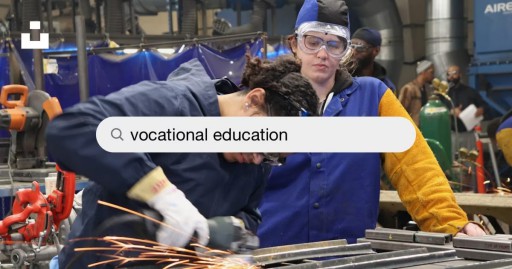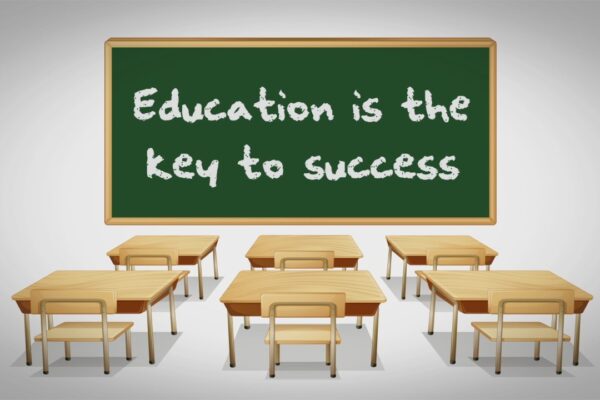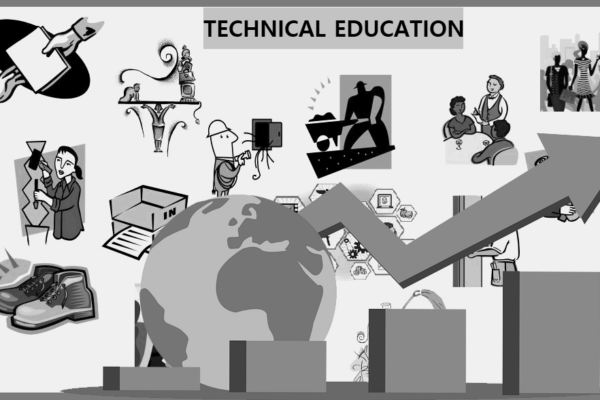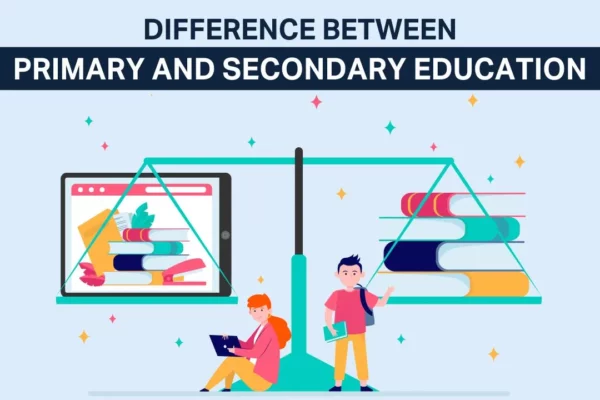The importance of technical education in today’s world
In today’s rapidly evolving world, the importance of technical education cannot be overstated. As technology continues to advance at an unprecedented pace, it is crucial for students to develop the skills and knowledge necessary to navigate the challenges of tomorrow. Technical education provides a strong foundation for students by equipping them with practical skills and problem-solving abilities that are highly sought after in the modern workforce.
Technical education is not limited to traditional academic subjects, but rather encompasses a wide range of disciplines such as engineering, computer science, and healthcare. It focuses on providing students with hands-on experience and real-world application of knowledge, preparing them for the demands of the ever-changing job market. By bridging the gap between theory and practice, technical education cultivates critical thinking, creativity, and adaptability in students, setting them up for success in their future careers.
Benefits of technical education
The benefits of technical education are manifold. Firstly, it offers students a direct path to employment. With the demand for skilled workers increasing across various industries, technical education provides students with the necessary skills and qualifications to secure well-paying jobs. Moreover, technical education often leads to higher earning potential, as specialized skills are valued in the job market and can command higher salaries.
Secondly, technical education fosters innovation and entrepreneurship. By encouraging students to think outside the box and apply their knowledge to real-world problems, it nurtures a culture of creativity and problem-solving. This, in turn, promotes the development of new technologies, products, and services, driving economic growth and progress.
Lastly, technical education empowers individuals to become self-reliant. By equipping students with practical skills, technical education enables them to take charge of their own futures. Whether it is starting their own business or pursuing a specific career path, technical education provides students with the tools they need to succeed and thrive in the professional world.

Technical education statistics
Statistics show that technical education is becoming increasingly popular among students. According to a report by the National Center for Education Statistics, enrollment in technical education programs has been on the rise over the past decade. In 2020, there were over 7 million students enrolled in postsecondary technical education programs in the United States alone.
Furthermore, technical education has proven to be a successful pathway to employment. According to the Bureau of Labor Statistics, occupations requiring technical skills are projected to grow at a faster rate than the average for all occupations. This indicates a growing demand for skilled workers and highlights the importance of technical education in meeting this demand.
Understanding the different types of technical education
Technical education encompasses a wide range of disciplines and programs. From vocational schools to community colleges and specialized training programs, there are various avenues through which students can pursue technical education.
Vocational schools offer hands-on training in specific trades such as automotive repair, plumbing, or cosmetology. These programs typically focus on practical skills and can provide students with the necessary certifications to enter the workforce directly after graduation.
Community colleges often offer associate degree programs in technical fields such as engineering technology, computer science, or healthcare. These programs provide a more comprehensive education, combining theoretical knowledge with practical experience. They can serve as a stepping stone for students who wish to pursue further education or enter the job market immediately.
Specialized training programs, on the other hand, are often offered by industry associations or private institutions. These programs are designed to provide students with targeted training in specific technical skills, such as coding, cybersecurity, or advanced manufacturing. They are typically shorter in duration and focus on developing highly specialized skills that are in high demand in specific industries.
How technical education prepares students for future challenges
Technical education plays a vital role in preparing students for the challenges of the future. By providing students with hands-on experience and practical skills, it equips them with the ability to adapt to rapidly changing technologies and industries. The following are some of the key skills that students develop through technical education:
1. Critical thinking and problem-solving:
Technical education fosters critical thinking skills by encouraging students to analyze problems and develop innovative solutions. Through projects and real-world scenarios, students learn to think critically, evaluate information, and make informed decisions. These skills are essential in a world where complex problems require creative and analytical thinking.
2. Collaboration and teamwork:
In today’s interconnected world, collaboration and teamwork are crucial skills. Technical education often involves group projects and hands-on activities that require students to work together effectively. By collaborating with peers, students learn to communicate, delegate tasks, and leverage diverse perspectives to achieve common goals. These team-building skills are highly valued in the professional world.
3. Adaptability and flexibility:
Technical education exposes students to a variety of technologies, methodologies, and tools. This exposure helps students develop adaptability and flexibility, enabling them to quickly learn and adapt to new technologies and industry trends. In a rapidly evolving job market, the ability to learn and adapt is vital for career success.
4. Communication and presentation skills:
Technical education emphasizes the importance of effective communication and presentation skills. Students learn to articulate their ideas clearly, both orally and in writing. These skills are essential for collaborating with colleagues, presenting ideas to clients or stakeholders, and advancing in one’s career.
Careers and opportunities in technical fields
Technical education opens up a world of exciting career opportunities. Graduates of technical education programs can find employment in a wide range of industries, including engineering, information technology, healthcare, manufacturing, and construction, among others. The demand for skilled professionals in these fields is projected to continue growing in the coming years.
Some of the specific career paths that technical education can lead to include:
- Software Development: With the increasing reliance on technology, software developers are in high demand. Technical education programs in computer science or software engineering can provide students with the skills needed to develop innovative software solutions.
- Engineering: Technical education programs in various engineering disciplines, such as civil, mechanical, or electrical engineering, can lead to rewarding careers in designing and building infrastructure, machinery, or electrical systems.
- Healthcare: Technical education programs in healthcare fields, such as nursing, medical assisting, or radiologic technology, can prepare students for careers in hospitals, clinics, or other healthcare settings.
- Skilled Trades: Vocational programs in trades such as plumbing, welding, or carpentry can provide students with the skills needed to work in construction or maintenance industries.
These are just a few examples of the many career paths that technical education can lead to. The possibilities are vast, and the demand for skilled professionals in technical fields continues to grow.
Promoting technical education in schools and communities
To ensure that students have access to quality technical education, it is essential to promote and support these programs in schools and communities. Here are some strategies that can be employed to promote technical education:
1. Awareness campaigns:
Raising awareness about the benefits of technical education is crucial in encouraging students to consider these programs. Schools and communities can organize information sessions, career fairs, and workshops to showcase the diverse opportunities available in technical fields.
2. Collaboration with industry:
Establishing partnerships with local businesses and industries can provide students with valuable opportunities for internships, apprenticeships, and job placement. These collaborations can also help tailor technical education programs to meet the specific needs of the industry, ensuring that graduates are well-prepared for the workforce.
3. Integration into the curriculum:
Integrating technical education into the broader curriculum can help students see the relevance and applicability of these programs. By incorporating technical skills and knowledge across various subjects, schools can create a well-rounded education that prepares students for both technical and non-technical careers.
4. Scholarships and financial support:
Providing scholarships and financial support to students interested in technical education can alleviate financial barriers and make these programs more accessible. Scholarships can incentivize students to pursue technical fields and attract a diverse range of talent.
Advancements in technical education
As technology continues to advance, technical education must evolve to keep pace with the changing needs of the industry. Here are some of the advancements in technical education that are shaping the future:
1. Online learning:
The rise of online learning platforms has made technical education more accessible than ever before. Students can now access high-quality technical education programs from the comfort of their own homes, allowing for flexible learning schedules and personalized learning experiences.
2. Virtual reality and simulation:
Virtual reality and simulation technologies are revolutionizing technical education by providing immersive and hands-on learning experiences. Students can practice technical skills in virtual environments, making mistakes and learning from them without real-world consequences. This technology enhances the effectiveness and efficiency of technical education programs.
3. Industry partnerships and apprenticeships:
Technical education programs are increasingly partnering with industries to offer apprenticeships and work-integrated learning opportunities. These partnerships allow students to gain practical experience in real-world settings, bridging the gap between education and industry. By working alongside professionals, students can develop industry-specific skills and build valuable networks.
4. Focus on emerging technologies:
Technical education programs are placing a greater emphasis on emerging technologies such as artificial intelligence, blockchain, and cybersecurity. By equipping students with the skills needed to work with these technologies, technical education ensures that graduates are well-prepared for the jobs of the future.










Comments on " How Technical Education Prepares Students for Tomorrow’s Challenges" :